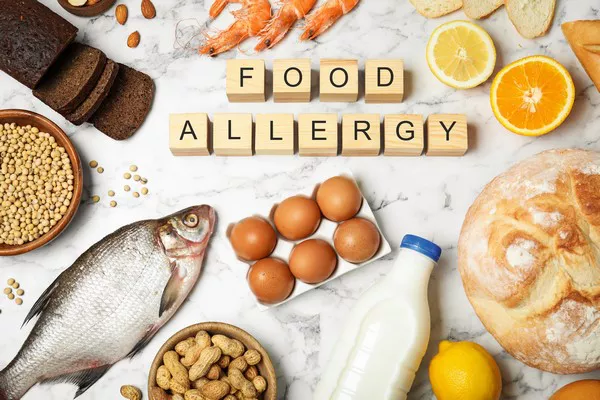A new study from Imperial College London has revealed that the incidence of food allergies in England has more than doubled over the past decade. The research also highlights a concerning trend: one-third of individuals who have experienced life-threatening allergic reactions are not carrying adrenaline auto-injectors, which are crucial for emergency treatment.
Study Findings
The analysis of GP records for 7 million people showed that the rate of new food allergy cases increased from 76 per 100,000 individuals in 2008 to 160 per 100,000 in 2018. The overall prevalence of food allergies rose from 0.4% to 1.1% during this period.
Children under five years old have the highest prevalence of food allergies, with 4% affected. The rates decrease with age: 2.4% for children aged five to nine, 2% for those aged ten to fourteen, 1.7% for fifteen to nineteen-year-olds, and 0.7% for adults over twenty in 2018.
Anaphylaxis and Adrenaline Auto-Injectors
The study, published in The Lancet Public Health, found that one in three patients who had previously experienced anaphylaxis—an extreme and potentially fatal allergic reaction—did not possess their own adrenaline auto-injectors (AAIs). These devices are essential for treating severe allergic reactions promptly.
Dr. Paul Turner, Professor of Paediatric Allergy at Imperial College’s National Heart and Lung Institute, emphasized the urgent need to improve support for GPs and primary care staff managing food allergies. “Food allergy can have a huge impact on people’s lives, and in some tragic cases, can cut lives short,” Turner said.
Possible Causes for the Increase
While the study did not explore the reasons behind the surge in food allergy cases, experts suggest several contributing factors. Increased awareness may lead to more diagnoses, and outdated parental advice, such as delaying the introduction of allergenic foods like peanuts, could be a factor. Furthermore, exposure to allergens through environmental sources or changes in skin care products may be increasing allergy risks.
Other potential contributors include poorer diets, genetic factors, vitamin D deficiency, pollution, and environmental influences.
Current Trends and Recommendations
Despite the rise in prevalence, Imperial College noted that the rate of new diagnoses might be stabilizing. Recent changes in infant feeding guidelines now recommend introducing potential allergens, such as peanuts and eggs, earlier in a child’s diet, which might be influencing the trend.
Dr. Turner highlighted both positive and negative aspects of the study: “The good news is that while the prevalence of food allergy has increased, the numbers of new cases occurring each year appear to be plateauing. However, more than one-third of patients at risk of severe reactions do not carry potentially life-saving rescue adrenaline auto-injectors, like EpiPens.”
Disparities in Access
The study also found disparities in the prescription of AAIs, particularly in more deprived areas. Only 55% of adults and 64% of children with a history of anaphylaxis had prescriptions for AAIs.
Nadim Ednan-Laperouse, co-founder of the Natasha Allergy Research Foundation, expressed concern over these findings. “It is shocking and alarming to discover that more than a third of people who have experienced anaphylaxis have not been prescribed an adrenaline auto-injector, and that those in poorer communities are less likely to have access to this life-saving medicine. This is unacceptable and will inevitably put lives at risk. Anyone with a serious food allergy should carry two AAIs at all times.”
Conclusion
The study underscores the urgent need for better support systems and access to essential medical devices for managing food allergies. While the overall rise in diagnoses presents a significant public health challenge, ensuring that those at risk of severe reactions are adequately prepared remains a critical issue.


